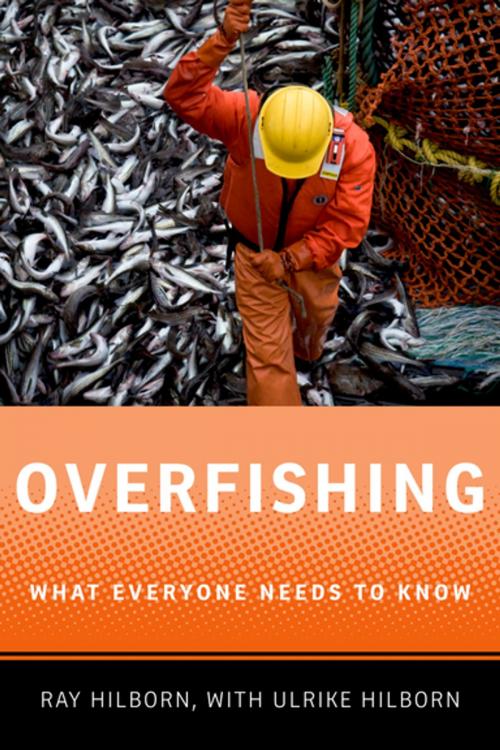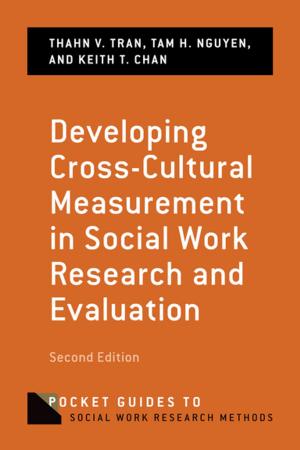Overfishing
What Everyone Needs to Know®
Nonfiction, Science & Nature, Science, Biological Sciences, Ecology, Social & Cultural Studies, Political Science, Government, Public Policy, Religion & Spirituality, Philosophy, Ethics & Moral Philosophy| Author: | Ray Hilborn | ISBN: | 9780199930029 |
| Publisher: | Oxford University Press | Publication: | April 6, 2012 |
| Imprint: | Oxford University Press | Language: | English |
| Author: | Ray Hilborn |
| ISBN: | 9780199930029 |
| Publisher: | Oxford University Press |
| Publication: | April 6, 2012 |
| Imprint: | Oxford University Press |
| Language: | English |
Over the past twenty years considerable public attention has been focused on the decline of marine fisheries, the sustainability of world fish production, and the impacts of fishing on marine ecosystems. Many have voiced their concerns about marine conservation, as well as the sustainable and ethical consumption of fish. But are fisheries in danger of collapse? Will we soon need to find ways to replace this food system? Should we be worried that we could be fishing certain species to extinction? Can commercial fishing be carried out in a sustainable way? While overblown prognoses concerning the dire state of fisheries are plentiful, clear scientific explanations of the basic issues surrounding overfishing are less so - and there remains great confusion about the actual amount of overfishing and its ecological impact. Overfishing: What Everyone Needs to Know® will provide a balanced explanation of the broad issues associated with overfishing. Guiding readers through the scientific, political, economic, and ethical issues associated with harvesting fish from the ocean, it will provide answers to questions about which fisheries are sustainably managed and which are not. Ray and Ulrike Hilborn address topics including historical overfishing, high seas fisheries, recreational fisheries, illegal fishing, climate and fisheries, trawling, economic and biological overfishing, and marine protected areas. In order to illustrate the effects of each of these issues, they will incorporate case studies of different species of fish. Overall, the authors present a hopeful view of the future of fisheries. Most of the world's fisheries are not overfished, and many once overfished stocks are now rebuilding. In fact, we can learn from the management failures and successes to ensure that fisheries are sustainable and contribute to national wealth and food security. Concise and clear, this book presents a compelling "big picture" of the state of oceans and the solutions to ending overfishing. What Everyone Needs to Know® is a registered trademark of Oxford University Press.
Over the past twenty years considerable public attention has been focused on the decline of marine fisheries, the sustainability of world fish production, and the impacts of fishing on marine ecosystems. Many have voiced their concerns about marine conservation, as well as the sustainable and ethical consumption of fish. But are fisheries in danger of collapse? Will we soon need to find ways to replace this food system? Should we be worried that we could be fishing certain species to extinction? Can commercial fishing be carried out in a sustainable way? While overblown prognoses concerning the dire state of fisheries are plentiful, clear scientific explanations of the basic issues surrounding overfishing are less so - and there remains great confusion about the actual amount of overfishing and its ecological impact. Overfishing: What Everyone Needs to Know® will provide a balanced explanation of the broad issues associated with overfishing. Guiding readers through the scientific, political, economic, and ethical issues associated with harvesting fish from the ocean, it will provide answers to questions about which fisheries are sustainably managed and which are not. Ray and Ulrike Hilborn address topics including historical overfishing, high seas fisheries, recreational fisheries, illegal fishing, climate and fisheries, trawling, economic and biological overfishing, and marine protected areas. In order to illustrate the effects of each of these issues, they will incorporate case studies of different species of fish. Overall, the authors present a hopeful view of the future of fisheries. Most of the world's fisheries are not overfished, and many once overfished stocks are now rebuilding. In fact, we can learn from the management failures and successes to ensure that fisheries are sustainable and contribute to national wealth and food security. Concise and clear, this book presents a compelling "big picture" of the state of oceans and the solutions to ending overfishing. What Everyone Needs to Know® is a registered trademark of Oxford University Press.















